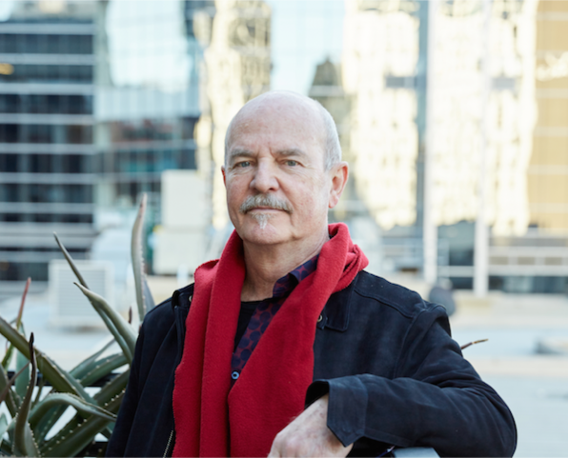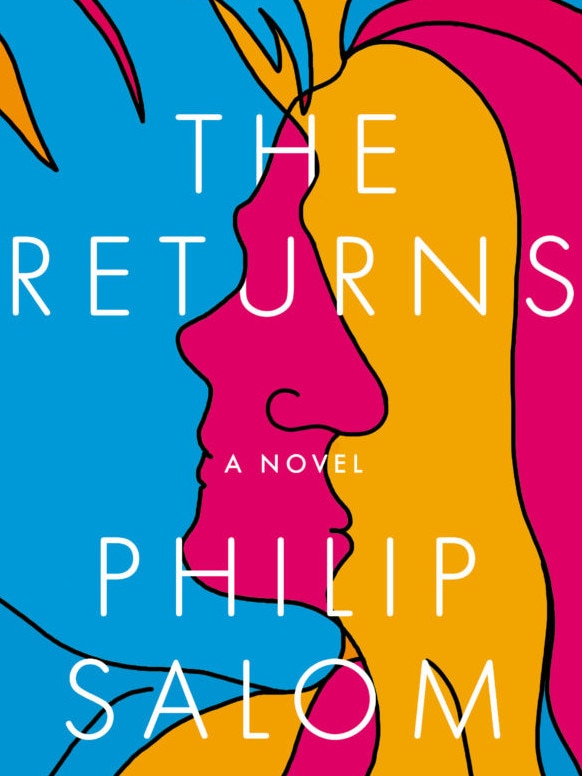Love song struck in a minor key
Philip Salom’s new novel is as complex as anything in contemporary Australian literature, writes Geordie Williamson

T he Returns is a novel for grown-ups, though it contains few of them — grown-ups being a species so rare these days as to be functionally extinct.
You could say Philip Salom’s fourth novel proceeds in the awareness that what we carry into adulthood is a child’s self, armoured by time and practice. For Salom, maturity is the casing that hardens around that thong of emotions and ideas, failures and humiliations, minor successes and thwarted ambitions that have been gifted to us by nature, nurture and experience.
What the novel does do is respect the reader as a fellow traveller: a companion in that welter of confusion that envelops us as we move through the world. The Returns also trusts that we are willing to engage with a narrative that lacks what one character calls the frisson of surfaces.
Its story is domestic in scope, suburban in setting and built mainly from external dialogue and interior monologue, those blurts of consciousness we subsequently transcribe and edit into some kind of sense or meaning.
And just as the odd couple at the novel’s heart move towards some shared accommodation, some connection beyond the romantic cliches of our culture, so too does the author ask us to investigate an old paradox — that humans are isolates drawn towards others by essential loneliness — in a fresh context.
This makes Salom’s experiment sound more explicitly philosophical than it is. The determined ordinariness of the situation it describes means that loftier notions, when they do come, are grounded in the textures of everyday life.
The novel’s real achievement follows from this strategy. It finds virtue in declensions from the usual markers of beauty, talent or success by which we have been taught to measure worth.
It is a paean to the minor, the modest, the middling — and, being so, it attains an easy intimacy with readers. The book is so at home in its own skin, it makes grander narratives look like show-offs.
The Returns begins, with a nod to the slight literary self-consciousness that infuses the text, in a Melbourne bookshop, a small, well-stocked independent operation run by a former public servant named Trevor.
He’s an intelligent, well-read man, kind yet streetwise, whose bookshop perch allows him to observe the comings and goings of the urban scene. The neighbourhood outside the window strikes him less as a community than a congregation of loners.
One day a woman enters the store after having a turn. She’s in early middle age, waif-thin, scattered, just one more wounded soul, or so Trevor imagines before offering her a drink and a seat to recover.
When she returns, weeks later, it is not to thank Trevor for his momentary decency but to place an ad in his window, seeking a lodger for her house nearby. Trevor has been sleeping in the spare room of his own home following the breakdown of his marriage. Weary of sharing household space with an estranged wife, he decides to take up the offer himself.
Somewhat reluctantly, his new landlady, Elizabeth, agrees. She was hoping for a young female student, not this bulky, sad, middle-aged man. But the new arrangement surprises both parties. A satisfying drama emerges from the way each reveals unexpected depths and qualities to the other. For Trevor, the move allows him to break from a poisoned relationship and to reinvigorate, using a backyard shed in Elizabeth’s garden, the painting career he had cast aside years before.
And for Elizabeth, a methodical freelance editor and constitutionally solitary woman, it is the pleasant shock of enjoying the company and proximity of another person — and a man, too, since she has, after a failed early relationship, tended to avoid blokes or engage with them only via brief sexual encounters.

Salom displays a sure sense of when to toggle from easy banter between the two, over a bottle of wine most evenings, and the watchful gaze each privately trains on the other. Sharing the space makes both acutely self-conscious — as though some external presence was the necessary spur to renewed awareness. ‘‘A certain amount of self-consciousness is good,’’ Elizabeth thinks. ‘‘Living alone there is no one to reflect you.’’
It’s not a romance, not even close — at least at first — but what we do witness is the slow, steady dismantling of long-established defences, built by each over time to protect wounded hearts. Parents, as much as ex-partners, are central to this wounding. In Trevor’s case it is the bullying, narcissistic, Polish migrant father who skipped out on his family decades ago. A man he has long presumed to be dead.
For Elizabeth, it is a mother who is all too present. She spent her daughter’s teenage years as part of the Rajneesh movement in Fremantle, dressed in orange robes and practising free love. These days she is physically frail and in mental decline. The dutiful daughter chafes at having to care for a woman who was once so careless with her.
But if heredity is a kind of trap, creating roles and responsibilities for us that we never asked to assume, calling in debts we never ran up, a thoughtful, unselfish third party can furnish a liberating objective view.
Elizabeth doesn’t prise Trevor away from his overweening former wife; she models decencies the cooler, crueller woman does not possess.
Likewise, Trevor’s stolid self-reliance shows Elizabeth a way of dealing with her mother’s demands. These are small gifts, minor compensations for difficult situations, but they are necessary precursors to any new beginning.
Melbourne-based Salom was a poet before he became a novelist. His previous novel, Waiting, was short-listed for the 2017 Miles Franklin Literary Award. He has the gift of using language and image to drill right through a reality governed by prose. Here he is, describing the slow-dawning acknowledgment of Elizabeth and Trevor’s relationship, in a passage lovely and wise enough to be quoted in full:
The subdued dawn light above the long park and the trees is quietly amazing and seeing it is humbling without any search for meaning, it might be said. Magpies warble their counterpoint in the branches. An occasional crow sounds lazy even this early in the day. Elizabeth and Trevor are taking Gordon to his usual Royal Park track and to meet, as always, the neighbourhood dogs. After the first weeks she has talked Trevor into accompanying her. ‘‘Think of it as exercise. As a way of getting to know one another,’’ she said, ‘‘without sitting down and drinking anything.’’ For his company, in fact. She is taking more liberties as she becomes more used to him. What a quickly accepted habit, she thinks, on her part at least, meaning she was lonely after all.
Note the relaxed attentiveness to small sensual pleasures, the mashup of the ordinary and exquisite, the dangling asides. Note, too, the controlled messiness of the otherwise elegant progression of Salom’s prose.
What he does is to notate a process as much as an outcome; mental states as much as narrative event.
This is a love story, yes, but it is content not to reach some happy ending too soon. That isn’t the novel’s aim. ‘‘Stories are always going somewhere,’’ Elizabeth the editor muses at one point, ‘‘and the fact is, we aren’t.’’
Another quotation is helpful here, from Goethe: ‘‘All beginnings are delightful; the threshold is the place to pause.’’ And that is what The Returns sets out to do: to suspend, as long as possible, the acknowledgment that these two very different people should be more than lodger and host.
Salom is not always entirely on point. Trevor emerges as a more rounded character than Elizabeth: the author is less able to access feminine points of view, though he makes strenuous efforts to accommodate that rich alternate perspective.
Nor does he always manage to inhabit the minds of men and women in their 40s, or even younger characters. There is a splendid cantankerousness here that speaks of an older mind borrowing younger bodies.
Still, there is subtlety at work that dissolves those small complaints. Salom has done the hardest thing, after all: to make happiness swing on the page, albeit only after putting his creations through a little hell of humiliation and ordinary sadness.
If Salom’s willingness to resist the easy course of narrative action is a tonic, it is the thoughtfulness with which he does so that counts most. This is not a difficult novel for its own sake; it is lucid and smooth, paced at an easy lope. But the questions it asks of itself are as thorny and complex as anything in contemporary Australian literature. The Returns is an anti-fable for grown-ups.
As Trevor thinks to himself at one point, furnishing a self-conscious primer for the novel as a whole:
Perhaps he should write a book about what he doesn’t know and doesn’t understand and therefore has no answers for.
It would take the rest of his life, and no one would read
that either. All he knows about life is that it’s not what
people think it is.
Geordie Williamson is The Australian’s chief literary critic.
The Returns: A Novel
By Philip Salom
Transit Lounge, 336pp, $29.99




To join the conversation, please log in. Don't have an account? Register
Join the conversation, you are commenting as Logout